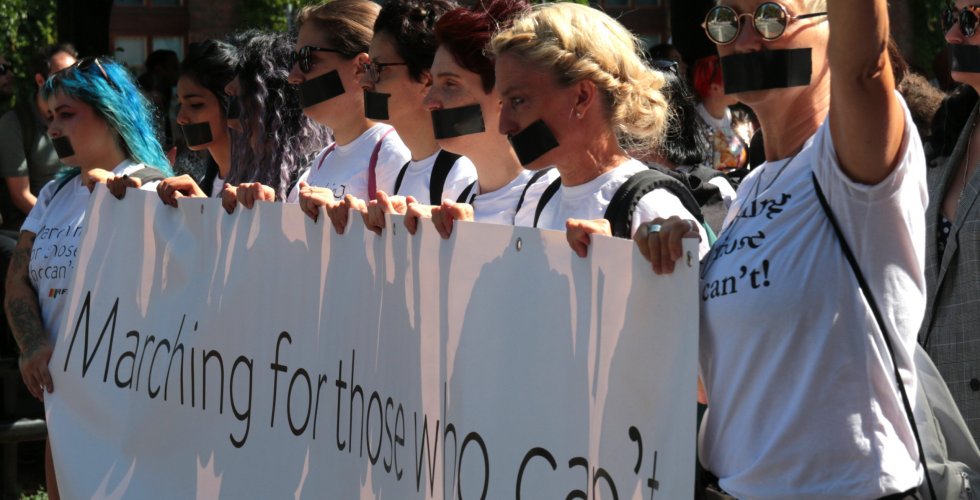
RFSL – a voice for LGBTQI people during the pandemic
There will be no Pride parades in Sweden this year. For many years, there has been a section in many of Sweden's Pride parades called "marching for those who can't". This year, it's all of us who, because of the corona pandemic, can't march.
In the world, there are many examples of how covid-19 not only affects people’s lives and health but also the political climate. We can see that the corona pandemic is now being used by homo and transphobic authoritarian leaders to tighten the grip on power and pursue a discriminatory policy. One example is Hungary, where parliament swiftly banned citizens from changing legal their gender. In Uganda, 19 LGBTQI people were arrested accused of spreading the coronavirus, making the pandemic yet another tool used to harass LGBTQI people in the country. There are more examples, and RFSL will continue to follow developments.
The situation in Europe
ILGA Europe’s yearly Rainbow Europe Map was released in the spring. The document scores and rates the rights of LGBTQI people in European countries, and shows that the development has reached a pivotal point. ILGA Europe concludes that either LGBTQI people’s living conditions in Europe will continue to improve, albeit unevenly and at different paces, or the development will come to a halt and deteriorate in many countries. Sweden is ranked number ten, and only fulfils 63 percent of the criteria. The lack of gender-neutral family legislation, something that affects rainbow families, lowers Sweden’s score, as does the requirement that you have to be 18 years old and have to have undergone a gender dysphoria assessment in order to change your legal gender.
The European Union Agency for Fundamental Rights (FRA) has also released a survey based on answers from LGBTQI people in EU countries as well as Great Britain, Serbia and Northern Macedonia. The survey shows that fear, violence and discrimination continue to be a big problem for LGBTQI people. With 140 000 respondents in 30 countries, the survey is the most comprehensive of its kind. The results show that even though many countries have come a long way when it comes to equal legislation for LGBTQI people, the factual progress is too limited and many LGBTQI people are still very vulnerable. In Sweden, 42 percent avoid holding their partner’s hand in public, 31 percent say that they have been harassed during the year preceding the survey, 22 percent often or always avoid certain places for fear of being attacked, and 15 percent have felt discriminated against at work during the year preceding the survey. In other words, we have a lot of work left to do in Sweden as well.
What is RFSL doing right now?
It’s important for RFSL to be a voice for LGBTQI people during the pandemic. During spring we have met with the Swedish minister for gender equality Åsa Lindhagen, the Liberal’s party leader Nyamko Sabuni, the Public Health Agency of Sweden, and many more decision-makers in order to alert them to the conditions of LGBTQI people. RFSL is also actively involved in international issues and works to support the global LGBTQI movement, of which we are a part, and in cooperation with a number of other organisations we have submitted this statement to the UN Human Rights Council.
During the summer we have focused on asylum issues specifically, since the parliamentary committee on migration policy appointed by the government is about to finish its work and turn in its report with suggestions for a new, more restrictive, asylum and migration policy. RFSL has reacted very critically to many of the expected primary suggestions from the committee, such as making temporary residence permits the norm, and that family reunification should be severely restricted, and, in practice, make it impossible for many LGBTQI people who have been granted asylum. The latter because of a demand that you should have been living together with your partner in your country of origin in order to qualify for reunification. In light of this, RFSL has started an appeal for the right to asylum.
You can read about what RFSL did during 2019 in our yearly report 2019. The work described in the yearly report has been continued in 2020, even though the corona pandemic has presented us with challenges and some adjustments have been made. We haven’t discontinued, we have continued.
A membership in RFSL only costs 100 SEK. You can also become a monthly donor.
